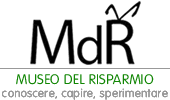
The new year has just arrived and with it the list of good resolutions.
If saving is among your goals for 2024, we have some advice for you.
Goal setting and planning
Well begun is half done. First, set your financial goals clearly.
Make sure they are specific, because it becomes difficult to measure desires that are too vague and this could discourage you from working towards them.
Don’t limit your commitment to “just saving a little”: define exactly how much you want to put aside and how you will use that money.
The more motivating your goal, the more you will be able to stick to your good intentions, even in times of difficulty, or what the English call rainy days!
Once you’ve established your financial goals for 2024, make time to plan.
Start by deciding when you want to reach your goal, evaluate your current economic situation (income, expenses, any ongoing financing, etc.), in order to consciously identify your priorities and change some behaviors if necessary.
How to proceed concretely? Here are some tips
– First divide the fixed expenses from the variable ones. Fixed costs usually involve rent, food, mortgage and bills. Variable costs are those related to lifestyle and free time.
– Decide which variable expenses to reduce or eliminate.
– Regularly monitor the progress of your savings plan and, if necessary, make appropriate adjustments.
Create effective saving habits
Achieving your financial goals is easier if you adopt positive saving habits.
Here are some examples:
- Try to eat at home more often and bring home-cooked meals to work: not only will you spend less, but you will also have a healthier diet.
- Pay attention to your water and light consumption: choose LED bulbs, remember to turn off the lights when you leave a room, limit the time you spend in the shower. The environment and your wallet will thank you.
- Check all your subscriptions and cancel any you no longer use.
- Whenever possible, buy second hand.
Focus on financial education
To maintain good intentions in the long term and make correct money management a lifestyle, it is important to have basic preparation.
Furthermore, if saving is the key principle of economic well-being and personal serenity, in the long term it also becomes important to know how to invest smartly.
Unfortunately, various research shows that the majority of Italians do not invest and do not know how to do it: they consider it difficult and risky, preferring to leave their money in their current account. An often counterproductive choice, especially in times of inflation.
This is also why it is necessary to rely on financial education, to learn how to save, invest and manage money well.
Visit the Museum of Saving: you will find lots of useful content, insights and webinars that can help you improve your economic awareness.
